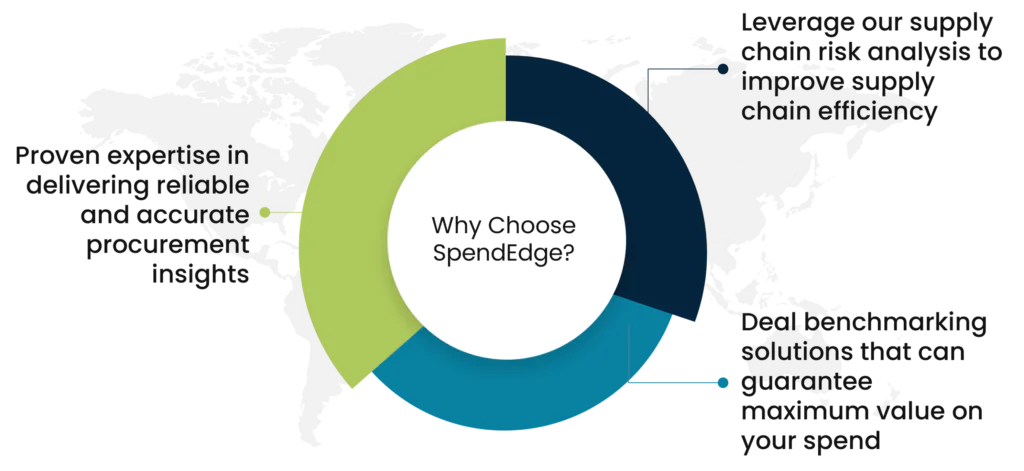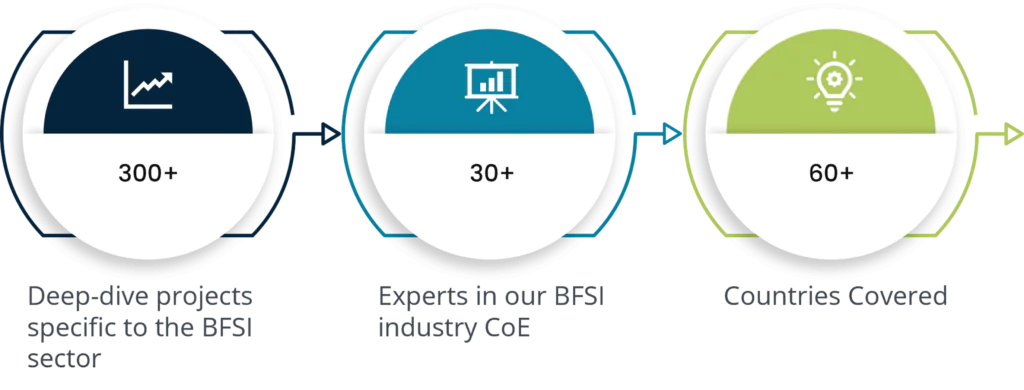By: Ankit Sood
Key takeaways
- Strategic Evolution of Procurement: Procurement in financial services has transitioned from a compliance-focused function to a strategic driver of business growth, leveraging innovative solutions and advanced technologies to enhance organizational performance.
- Technological Integration: The adoption of intelligent automation, eSourcing, and rules-based automation has streamlined procurement processes, improved supplier engagement, and ensured better compliance with regulatory standards.
- Innovation in Procurement Practices: Innovative operational procurement and advanced supply chain management have enabled organizations to achieve cost efficiencies, optimize procurement strategies, and support broader business objectives.
- Role of Procurement Professionals: Procurement and supply professionals play a crucial role in implementing innovative approaches, enhancing performance, and driving continuous improvement within the organization to meet evolving market demands.
When it comes to financial services, procurement has historically been viewed as a back-end function that solely focused on compliance, ultimately leading to rigid business practices. But fast forward to today, financial institutions are exploring every possible angle to use it as a business growth and transformation driver. Market pressures have forced service providers to align innovation closely with cost optimization and quality.
As a function that was based on looking back and analyzing ‘what if’ scenarios earlier, procurement has now evolved to look forward to drive cost efficiency across the organization. Risk management expertise and cost-saving initiatives form the nucleus of a strong procurement function, and teams that are well-equipped to offer these benefits will pave the way for innovation.
What is procurement innovation?
Procurement innovation involves implementing creative solutions, products, and processes to enhance and create value within an organization. Procurement and supply professionals play a crucial role in adopting innovative approaches, which can result in various benefits. These benefits may include support for small and medium-sized enterprises (SMEs), enhanced market stimulation, and improved performance in meeting broader procurement objectives.
Is procurement behind the new wave of innovation in banking?

Evolution into a forward-looking function:
Credit risk departments today rely on procurement innovations to monitor price transparency hurdles posed by suppliers and credit bureaus, as entrusting the responsibility of data contract handling with procurement teams ensures deeper insights and greater pricing transparency. Being able to identify and engage with best-fit suppliers using a collaborative approach helps organizations achieve vital cost efficiencies while ensuring utilization of the right data sets. Gradually recovering from the economic impact of the pandemic, banks are increasingly looking for contracts that offer a high level of flexibility with respect to credit data gaps as well as guarantee favorable pricing.
Embracing category management for effective procurement:
Since the financial crisis of 2008, procurement in banking industry has witnessed continual evolution in terms of business models and regulations, and the adoption of category management-based models is one of the major by-products of this. Banks are looking to employ category-specific managers who have a clear understanding of external market factors as well as internal needs. Leading service providers believe that it is crucial to get a holistic view of each spend category rather than a segmented view from the organization’s standpoint alone.
Unlocking the potential of large resource pools:
Complex projects are better served with the use of pooled resources, and banks have been quick to capitalize on this to ensure faster delivery and better stakeholder management. Segmenting the financial services procurement function into upstream and downstream has helped several banks establish well-defined roles and responsibilities for each functional group. In a nutshell, deep category knowledge which is perfectly aligned with overall organizational objectives is the lone pathway to achieving strategic business outcomes, and banks that fail to come to terms with this will find themselves lagging.
Rising importance of risk management:
It is imperative for supplier management processes to adopt a highly collaborative approach where banks have detailed discussions with their suppliers to develop solutions for strategic issues and also promote a sense of responsibility among them to work toward common objectives. Also, suppliers tend to deliver better services when they have a clear picture of their role in the organizational roadmap. Given the severe impact that regulatory mishaps can have on business profits and reputation, banks have begun to regard vendor management as a powerful risk mitigation tool. Volatility in these challenging times can often lead to unprecedented threats and related consequences, but banks that are inventive and take better control of their procurement functions are poised to remain competitive.
Why is it the best time for BFSI sector to undergo procurement transformation?
In an era where advances in technology occur so rapidly and at extremely short intervals, the age-old ‘time is money’ adage has never been more relevant! Banks must ensure optimal use of time and resources to stay ahead, but doing this requires an extensive overhaul of bank procurement processes. Over half the organizations operating in the market today either already have programs aimed at digital transformation of procurement operations or are in the process of implementing such programs.
Traditional conventions may lead us to believe that the role of procurement is exclusively centered around cost savings and profits, but today, its role and scope have grown in ways that organizations are still yet to fully comprehend. In the banking industry, for instance, lack of spend visibility due to decentralization is a common concern that plagues service providers. As a result, standardizing processes, and digitalizing functions with the aid of spend analysis software is one of the most common trends witnessed today.
Being a predominantly service-driven industry, supplier management was not given the necessary importance or attention in banking historically. However, supplier risk is fast becoming a major area of concern due to the highly dynamic regulatory landscape. Evaluating the creditworthiness of suppliers by obtaining a clear view of their financial and operational position will help banks mitigate risk significantly and keep their compliance records spotless. With data breaches becoming increasingly commonplace, the reputational and financial risk faced by banks has grown considerably. Having a suitable procurement solution focused on data security will enable banks to effectively tackle security threats.
Technology applications in procurement management
Technology plays a pivotal role in managing and safeguarding crucial documents like contracts in an organizational setup. This enables staff to conveniently access these documents from any location and at any time. Furthermore, leveraging data analytics is instrumental in tracking expenditures and inventory, empowering organizations to make informed decisions. This data-driven approach is particularly valuable in procurement, as it aids in minimizing errors. When it comes to inventory management, cutting-edge technologies like Radio Frequency Identification (RFID) offer real-time monitoring and control of product levels. This not only enables comprehensive tracking of a product’s lifecycle but also contributes to minimizing wastage.
Some technological innovations that increase productivity
3D printing:
3D printing involves layering materials to create finished goods and is not limited to just plastic. Due to technological advancements, materials such as metal, concrete, and food are now utilized in the 3D printing process. This advancement serves to accelerate the speed at which products reach the market, minimize global impact, and enhance supply chain efficiencies.
Artificial intelligence:
Artificial intelligence is a rapidly advancing field that encompasses rules-based automation as well as intelligent automation. It aids in eliminating repetitive tasks from the production process, thereby freeing up the workforce to concentrate on other aspects within the organization.
Cloud and mobile:
This technological advancement can optimize and automate procurement operations. Cloud computing is highly adaptable and offers superior power and performance.
Big data:
Data serves a wide range of purposes, from managing suppliers in operations to negotiating commercially and identifying opportunities.
eSourcing:
This type of technology enhances efficiency and operations within the procurement process. It utilizes electronic and internet-enabled systems to communicate with suppliers, select items, and guide you through the evaluation process using an automated system.
Why Choose SpendEdge?

Proven expertise in delivering reliable and accurate procurement insights:
With nearly two decades of experience in the industry, our experts have helped several banking industry clients effectively deal with procurement challenges with the help of actionable procurement intel. Our customized supplier shortlisting, updates, and sustainability analysis solutions will set you along a steady path toward procurement transformation across your organization by ensuring you gain increased visibility into your supply base.
Leverage our supply chain risk analysis to improve supply chain efficiency:
Risk implications can be far too severe for banking industry clients, especially when they have limited capabilities to gauge risks along the supply chain. Our experts will work with your teams to gain an in-depth understanding of your procurement needs and accordingly evaluate the risks associated with your suppliers, including financial, operational, regulatory, and reputational.
Deal benchmarking solutions that can guarantee maximum value on your spend:
Partnerships and contracts with suppliers must be monitored and modified on a continuous basis to ensure you get the best value possible for each dollar spent. With SpendEdge at your disposal, you can easily achieve cost optimization by getting a clear picture of competitors’ pricing strategies and industry best practices to make well-informed, profitable decisions.
Success stories: How SpendEdge with its diverse portfolio of procurement solutions helped a leading bank to transform into a reliable and efficient leading procurement function with actionable insights.
A highly reputable client from the banking industry with branches located in various parts of the world faced issues due to the lack of standardization across systems, processes, and customer data. Poor visibility and difficulty in analyzing data from disparate systems were some of the other major challenges. To achieve cost reduction and enhance business efficiency, the client wanted to explore the potential of implementing a standardized shared-services platform. Continued pressure to enhance services across niche segments along with regulatory changes was another headwind for the client to negate.
SpendEdge quickly mobilized a team of experts to work with the client’s team and carefully analyze the challenges and develop an appropriate research solution. Our experts helped the client evaluate various spending reports and accordingly devise the best-suited strategies. The client also gained actionable insights into pricing trends in order to reevaluate its methodology and achieve optimal savings. We also helped identify various cost-saving opportunities hidden across business units and boost overall business growth. Through automation of procurement activities, the client witnessed a significant reduction in lead times while maintaining cost efficiency and quality. Our recommendations suggested ways for the client to access and analyze data to strengthen decision making easily and quickly.
Find yourself overwhelmed by the complexity associated with digitally transforming your procurement function? Find out how easy and convenient this endeavor can be by talking to our experts.
Conclusion
The evolution of procurement in the financial services sector highlights a shift from a back-end, compliance-focused function to a forward-looking, strategic driver of business growth and transformation. This transition has been fueled by innovative solutions, products, and processes, allowing procurement and supply professionals to adopt innovative approaches that enhance performance and meet wider procurement objectives. The integration of innovative operational procurement and advanced supply chain management practices, along with technological innovations such as intelligent automation, eSourcing, and rules-based automation, has led to significant improvements in procurement strategies. The focus on innovation in procurement strategy has enabled organizations to optimize their procurement processes, engage with suppliers more effectively, and achieve better outcomes through a thorough evaluation process. By leveraging technological innovations, organizations can now streamline their procurement management, enhance the efficiency of their operations, and ensure compliance with regulatory standards. This is particularly important in sectors such as food, where maintaining high standards of quality and safety is critical. Overall, the adoption of innovative approaches in procurement has allowed organizations to drive performance improvements, achieve cost efficiencies, and support broader business objectives.
Author’s Details
Ankit Sood
Vice President, Sourcing and Procurement Intelligence
Ankit is working as a procurement specialist at Infiniti Research and has vast experience in leading market and procurement intelligence request for clients ranging across industries such as BFSI, CPG, F&B, Chemicals, and Pharmaceutical. He helps clients in solving procurement challenges related to supplier and competitive intelligence, cost optimization strategies, and overall market understanding.




